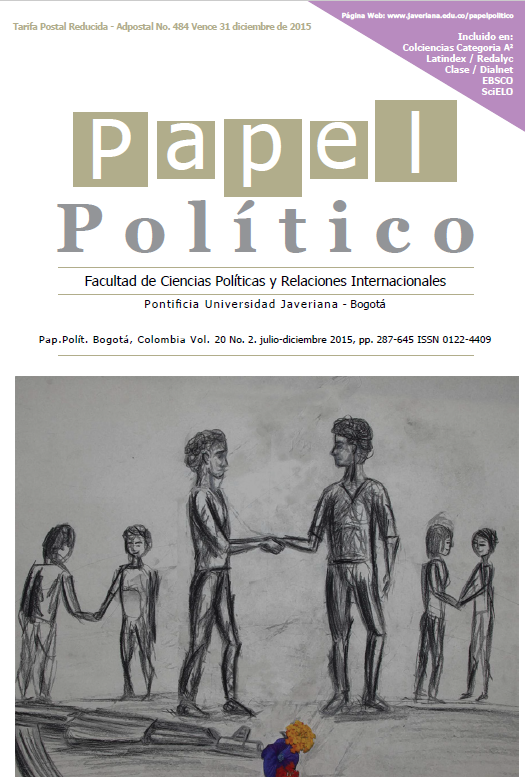Abstract
This article assesses the ways in which regional institutions, understood as norms and institutional bodies, contribute to the formation of collective identity in the Andean Community (AC). Departing from the previous existence of an Andean identity, grounded on historical and cultural issues, the paper takes three case studies to show the terms in which regional institutions contribute to the formation of three dimensions of collective identity in the AC, namely, the cultural, the ideological and the inter-group dimensions. The paper shows that although ideas of an Andean collective identity that state representatives and Andean General Secretariat (AGS) bureaucrats hold are very diverse, the AC institutional framework provides a strong basis for the emergence of collective identity among member states. Three explanations are provided in this regard: First, the benefits obtained from Andean norms and regional institutional organisms make states identify with the regionalist project and with each other. Second, regional organisms provide spaces for state interaction where state representatives learn from each other and identify between them. Third, the AGS operates as an independent agent that exerts pressure over member states to keep the pace of regionalism. The paper argues that these explanations account for an effect of ‘institutional inertia’ that has helped to maintain the AC regionalist project.
This journal is registered under a Creative Commons Attribution 4.0 International Public License. Thus, this work may be reproduced, distributed, and publicly shared in digital format, as long as the names of the authors and Pontificia Universidad Javeriana are acknowledged. Others are allowed to quote, adapt, transform, auto-archive, republish, and create based on this material, for any purpose (even commercial ones), provided the authorship is duly acknowledged, a link to the original work is provided, and it is specified if changes have been made. Pontificia Universidad Javeriana does not hold the rights of published works and the authors are solely responsible for the contents of their works; they keep the moral, intellectual, privacy, and publicity rights.
Approving the intervention of the work (review, copy-editing, translation, layout) and the following outreach, are granted through an use license and not through an assignment of rights. This means the journal and Pontificia Universidad Javeriana cannot be held responsible for any ethical malpractice by the authors. As a consequence of the protection granted by the use license, the journal is not required to publish recantations or modify information already published, unless the errata stems from the editorial management process. Publishing contents in this journal does not generate royalties for contributors.


